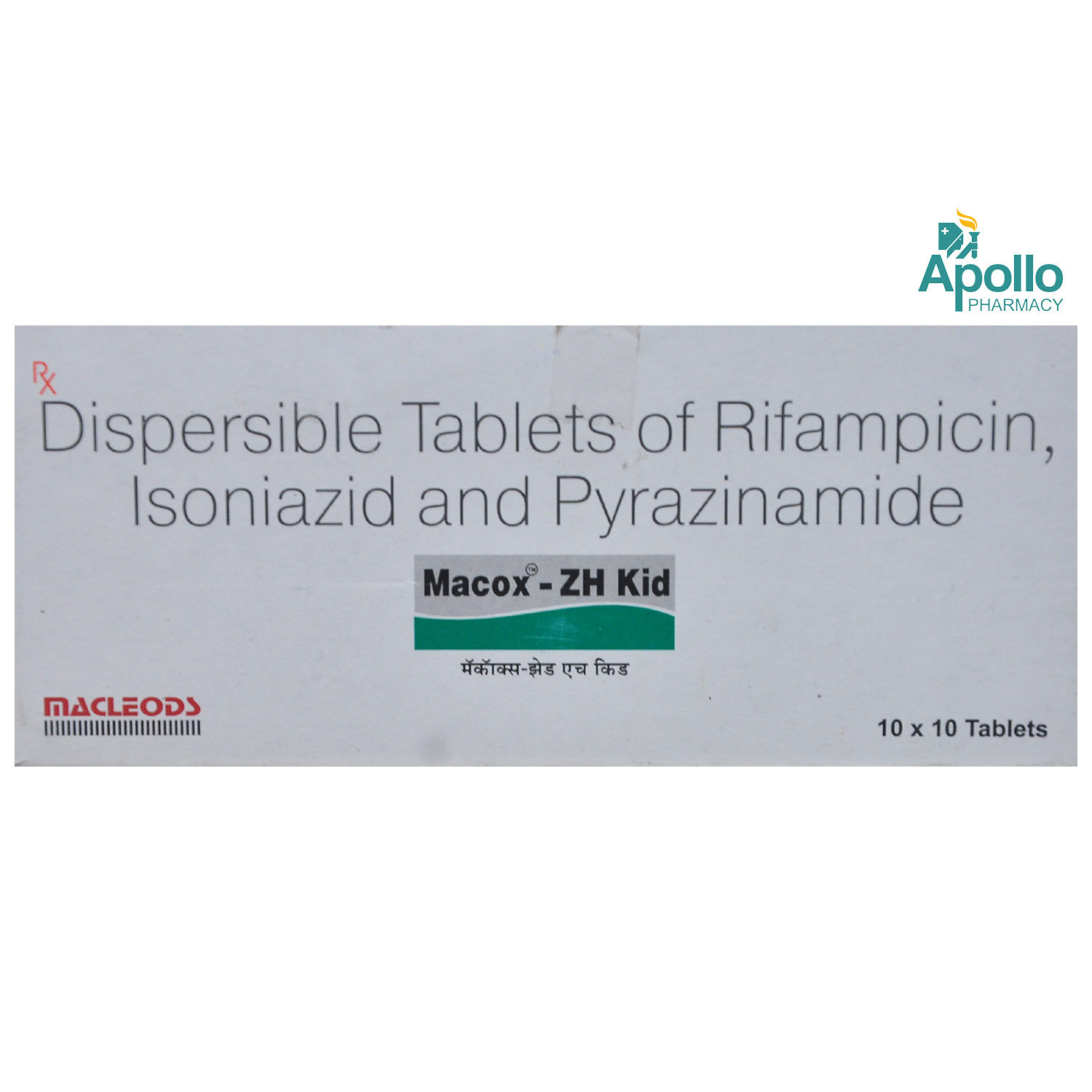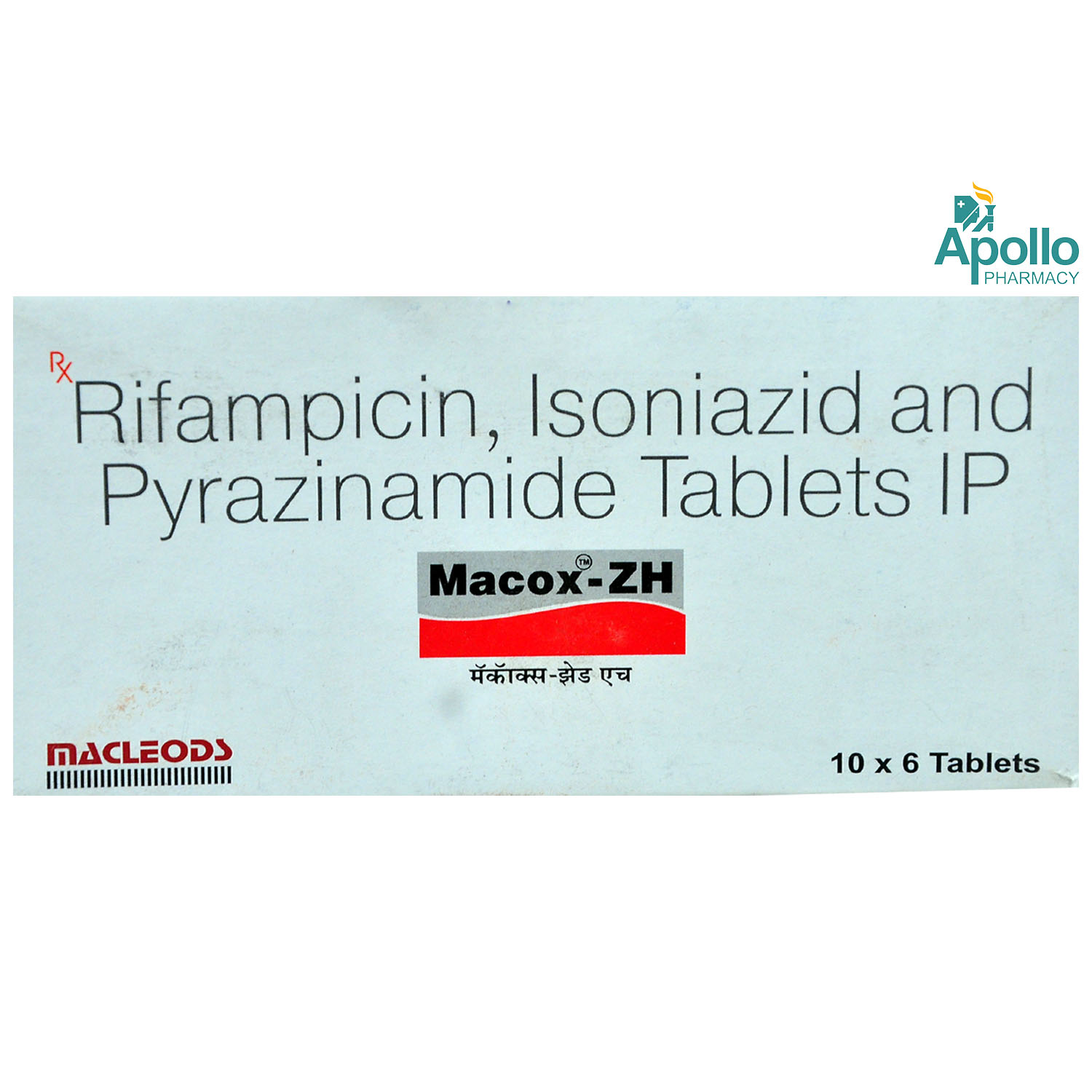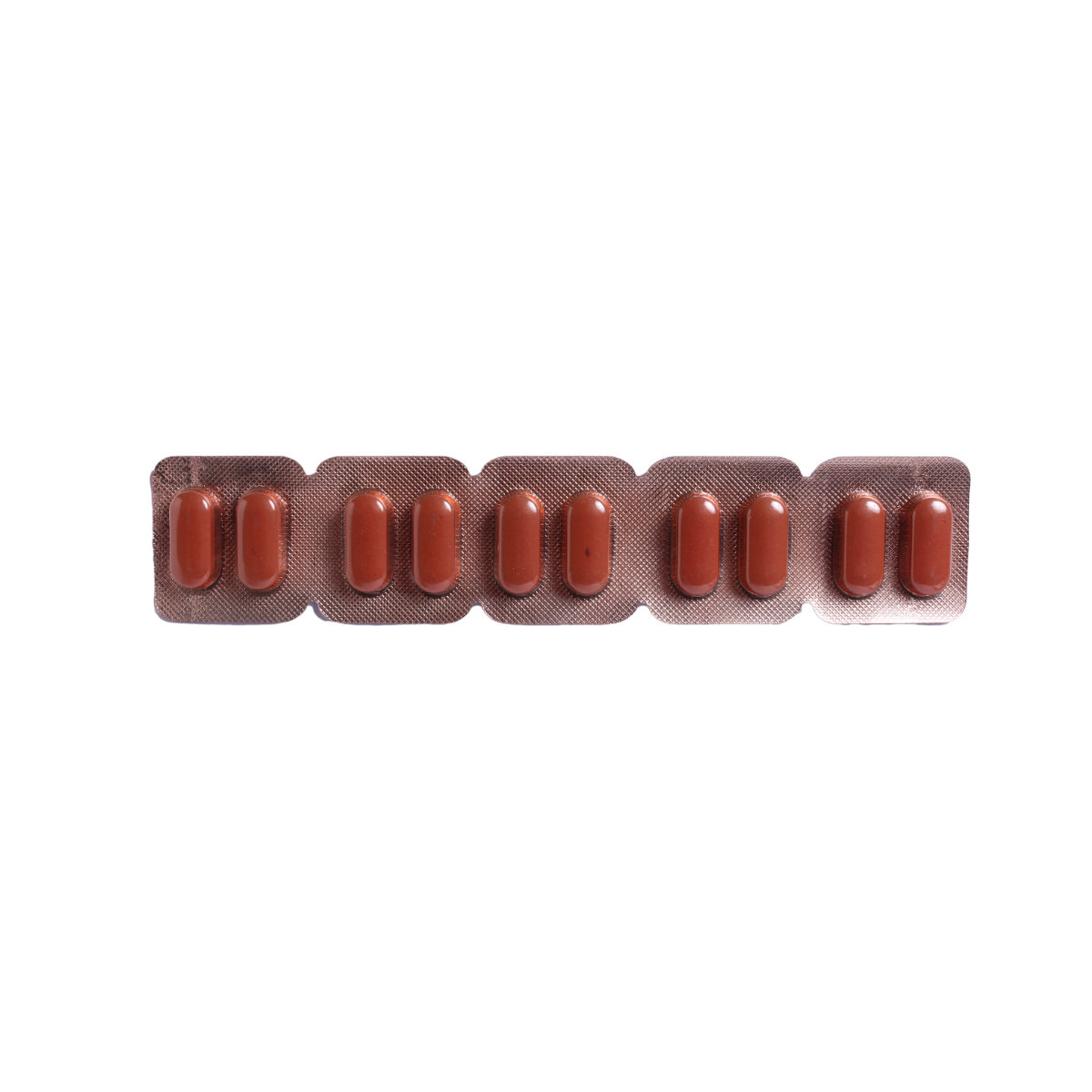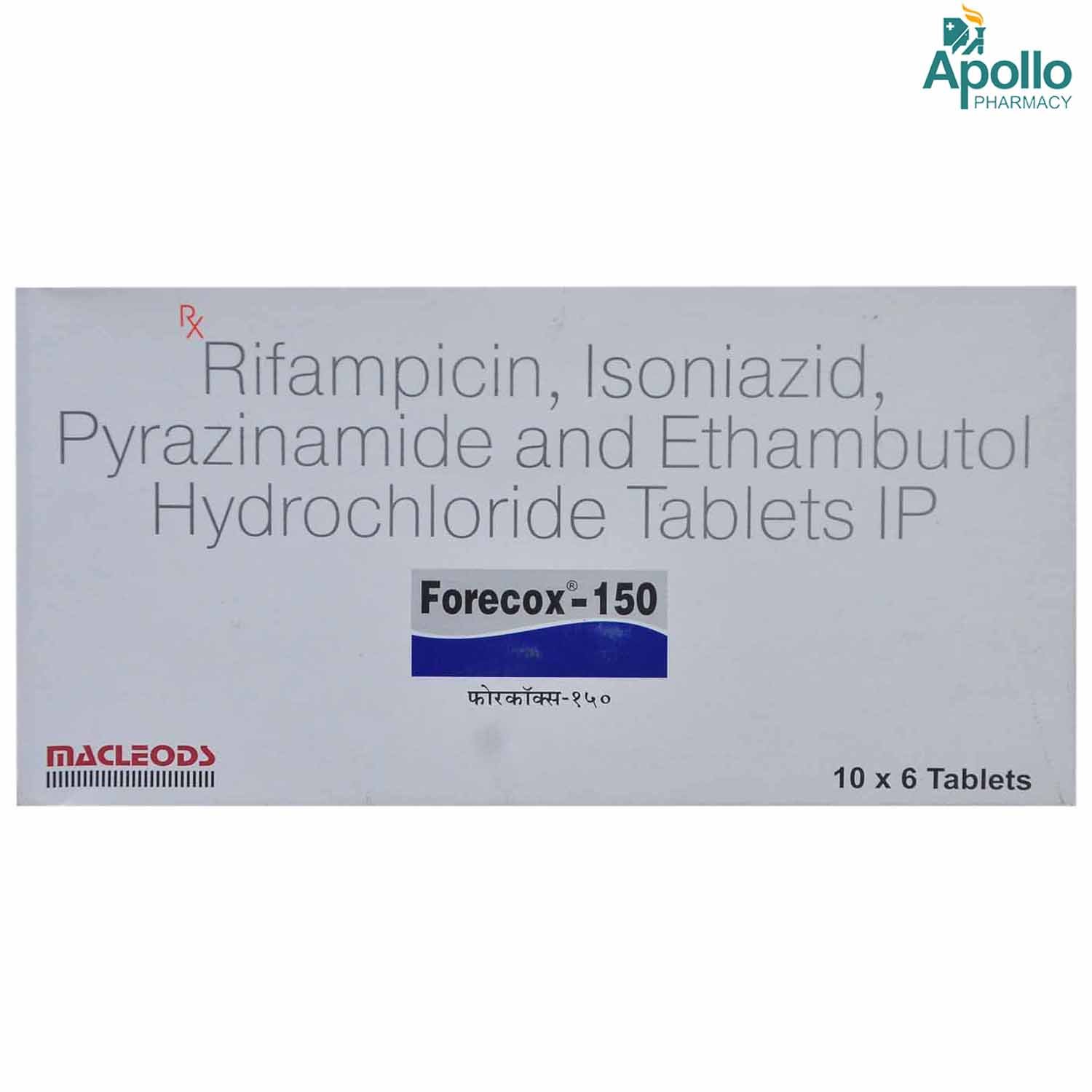Rifampicin+isoniazid+pyrazinamide
About Rifampicin+isoniazid+pyrazinamide
Rifampicin+isoniazid+pyrazinamide belongs to the group of medicines called 'anti-tuberculosis drugs' primarily used to treat tuberculosis. Also known as TB, Tuberculosis is an infectious disease caused by Mycobacterium tuberculosis that mainly affects the lungs, but it can also spread to other body parts such as kidneys, brain, spine, and bone marrow. Rifampicin+isoniazid+pyrazinamide does not work against infections caused by the virus, including cold and flu.
Rifampicin+isoniazid+pyrazinamide is a combination of three anti-tuberculosis drugs, namely: Rifampicin, Isoniazid and Pyrazinamide. Rifampicin inhibits DNA-dependent RNA polymerase activity in the bacteria. Isoniazid inhibits the biosynthesis of mycolic acid, which is the major component of the cell wall. Pyrazinamide inhibits the growth of the bacteria. Together, Rifampicin+isoniazid+pyrazinamide kills Mycobacterium tuberculosis which causes TB (tuberculosis).
Take Rifampicin+isoniazid+pyrazinamide as prescribed. In some cases, you may experience certain common side-effects such as weakness, nausea, vomiting, stomach pain, and joint or muscle pain. Most of these side-effects do not require medical attention and will resolve gradually over time. However, you are advised to talk to your doctor if you experience these side-effects persistently.
Avoid foods and drinks containing histamine or tyramine, such as cured meat, matured cheese, soya, tuna, salmon, mackerel, wine, and beer, while taking Rifampicin+isoniazid+pyrazinamide as they might cause interaction. Maintain a gap of one hour between Rifampicin+isoniazid+pyrazinamide and antacid medicines. Consult your doctor before taking Rifampicin+isoniazid+pyrazinamide if you are pregnant. Avoid breastfeeding while taking Rifampicin+isoniazid+pyrazinamide as it passes into breast milk.
Uses of Rifampicin+isoniazid+pyrazinamide
Medicinal Benefits
Rifampicin+isoniazid+pyrazinamide is a combination of three anti-tuberculosis drugs, namely: Rifampicin, Isoniazid, and Pyrazinamide. Rifampicin+isoniazid+pyrazinamide belongs to the group of medicines called anti-tuberculosis drugs primarily used to treat tuberculosis. Rifampicin inhibits DNA dependent RNA polymerase activity in the bacteria. Isoniazid inhibits the biosynthesis of mycolic acid, which is the major component of the cell wall. Pyrazinamide inhibits the growth of the bacteria. Together, Rifampicin+isoniazid+pyrazinamide kills Mycobacterium tuberculosis which causes TB (tuberculosis).
Directions for Use
Storage
Side Effects of Rifampicin+isoniazid+pyrazinamide
- Weakness
- Nausea
- Vomiting
- Stomach pain
- Joint or muscle pain
Drug Warnings
Do not take Rifampicin+isoniazid+pyrazinamide if you are allergic to any of its contents; if you have jaundice, or if you are taking HIV medicines (saquinavir or ritonavir). Before starting Rifampicin+isoniazid+pyrazinamide, please inform your doctor if you have diabetes, epilepsy, gout, mental health problems, HIV infection, malnutrition, peripheral neuropathy, porphyria, bleeding problems, kidney or liver problems. Avoid foods and drinks containing histamine or tyramine, such as cured meat, matured cheese, soya, tuna, salmon, mackerel, wine, and beer while taking Rifampicin+isoniazid+pyrazinamide as they might cause interaction. Maintain a gap of one hour between Rifampicin+isoniazid+pyrazinamide and antacid medicines. Consult your doctor before taking Rifampicin+isoniazid+pyrazinamide if you are pregnant. Avoid breastfeeding while taking Rifampicin+isoniazid+pyrazinamide as it passes into breast milk. Rifampicin+isoniazid+pyrazinamide may cause dizziness, and vision problems, so drive with caution. Avoid alcohol consumption while taking Rifampicin+isoniazid+pyrazinamide as it could lead to increased liver damage. Keep your doctor informed about your health condition and all the medicines you are taking to rule out any interactions.
Drug Interactions
Drug-Drug Interactions: Rifampicin+isoniazid+pyrazinamide may interact with an antibiotic (erythromycin), pain killer (acetaminophen), anti-diabetic (insulin isophane), anti-HIV (saquinavir, ritonavir), supplement (ergocalciferol).
Drug-Food Interactions: Avoid foods and drinks containing histamine or tyramine, such as cured meat, matured cheese, soya, tuna, salmon, mackerel, wine, and beer while taking Rifampicin+isoniazid+pyrazinamide as they might cause interaction.
Drug-Disease Interactions: Inform your doctor if you have colitis (inflammation in the lining of the colon), peripheral neuropathy (numbness and pain in hands and feet), porphyria, haemodialysis, diabetes, gout (high uric acid), liver toxicity, dialysis, optic neuritis (vision problems), kidney or liver dysfunction.
Drug-Drug Interactions Checker List:
Safety Advice

Alcohol
unsafeAvoid alcohol consumption while taking Rifampicin+isoniazid+pyrazinamide as it could lead to increased liver damage.

Pregnancy
cautionPlease consult your doctor if you are pregnant, planning for pregnancy or think you are pregnant; your doctor will prescribe Rifampicin+isoniazid+pyrazinamide only if the benefits outweigh the risks.

Breast Feeding
unsafeRifampicin+isoniazid+pyrazinamide passes into breast milk. Do not breastfeed while taking Rifampicin+isoniazid+pyrazinamide.

Driving
unsafeRifampicin+isoniazid+pyrazinamide may cause dizziness, vision problems, numbness and tingling sensation in hands and feet. Do not drive or operate machinery if you experience these symptoms.

Liver
cautionDose adjustment may be needed. Please consult your doctor before taking Rifampicin+isoniazid+pyrazinamide if you have liver impairment/liver disease before taking Rifampicin+isoniazid+pyrazinamide.

Kidney
cautionDose adjustment may be needed. Please consult your doctor if you have any concerns regarding this or if you have kidney impairment/kidney disease before taking Rifampicin+isoniazid+pyrazinamide.

Children
consult your doctorPlease consult your doctor. Your doctor may suggest suitable dose and dosage form based on your child's age, body weight and medical condition. Kid tablets could be used in children if prescribed by the doctor.
Habit Forming
Diet & Lifestyle Advise
- Pineapple juice might help soothe the symptoms of cough and cold. It also has anti-inflammatory and mucolytic properties.
- Foods rich in vitamin C, such as kiwi, broccoli, and bell pepper, helps in improving the immune system.
- Avoid processed and fried foods.
- Warm ginger tea or warm soup can help relieve cough.
- Avoid foods and drinks containing histamine or tyramine, such as cured meat, matured cheese, soya, tuna, salmon, mackerel, wine, and beer.
- Quit smoking and avoid alcohol consumption.
Special Advise
- Rifampicin+isoniazid+pyrazinamide may affect test results of some blood tests such as tests for folate, vitamin B12, and liver function. Inform the person doing the tests that you are taking Rifampicin+isoniazid+pyrazinamide.
- Your doctor may advise you to get regular liver tests while taking Rifampicin+isoniazid+pyrazinamide to check how your liver is functioning.
Patients Concern
Disease/Condition Glossary
Tuberculosis (TB): Tuberculosis is an infectious disease that affects the lungs, but it could also spread to other body parts such as the kidneys, brain, spine, and bone marrow. Tuberculosis is caused by a bacteria named Mycobacterium tuberculosis. It is a contagious disease which can spread to others through small droplets released into the air by a person suffering from tuberculosis. Symptoms include a cough that lasts for a few weeks, pain while coughing or with normal breathing, unexplained fatigue, fever, night sweats, loss of appetite and weight. People who smoke or consume alcohol, people diagnosed with HIV, and immune system problems are more likely at risk of developing active TB.
FAQs
Rifampicin+isoniazid+pyrazinamide is a combination of three anti-tuberculosis drugs, namely: Rifampicin, Isoniazid, and Pyrazinamide. Rifampicin inhibits DNA-dependent RNA polymerase activity in the bacteria. Isoniazid inhibits the biosynthesis of mycolic acid, which is the major component of the cell wall. Pyrazinamide inhibits the growth of the bacteria. Together, Rifampicin+isoniazid+pyrazinamide kills Mycobacterium tuberculosis which causes TB (tuberculosis).
Do not stop taking Rifampicin+isoniazid+pyrazinamide despite symptomatic relief. To treat your condition effectually, continue taking Rifampicin+isoniazid+pyrazinamide for as long as it has been prescribed for you.
Do not take Rifampicin+isoniazid+pyrazinamide along with antacids as it might decrease the effectiveness of Rifampicin+isoniazid+pyrazinamide. Maintain a minimum gap of 1 hour between both.
Consult your doctor before taking Rifampicin+isoniazid+pyrazinamide with other medicines. Medicines used to treat TB, such as PAS (P-amino salicylic acid) and cycloserine, should be taken 8 hours apart from Rifampicin+isoniazid+pyrazinamide if prescribed.
Rifampicin+isoniazid+pyrazinamide contains isoniazid which might interact with foods and drinks containing histamine or tyramine, such as cured meat, matured cheese, soya, tuna, salmon, mackerel, wine, and beer. Avoid these foods while taking Rifampicin+isoniazid+pyrazinamide.
Rifampicin+isoniazid+pyrazinamide might decrease the effectiveness of oral contraceptives (birth control pills). This could lead to an unplanned pregnancy. Instead, use a reliable barrier method of contraception such as condoms or the coil while taking Rifampicin+isoniazid+pyrazinamide. Consult your doctor if you have any concerns regarding this; your doctor may suggest an alternate method of contraception.
Rifampicin+isoniazid+pyrazinamide may cause discolouration of teeth, sweat, urine, sputum (phlegm), saliva, or tears. The colour in tears may last for some time, even after you stop taking Rifampicin+isoniazid+pyrazinamide. Do not worry as it is a common side-effect of Rifampicin+isoniazid+pyrazinamide.
Yes, Rifampicin+isoniazid+pyrazinamide might permanently stain soft contact lenses. Use spectacles and avoid wearing contact lens while taking Rifampicin+isoniazid+pyrazinamide.
Rifampicin+isoniazid+pyrazinamide may affect test results of some blood tests such as tests for folate, vitamin B12, and liver function. Inform the person doing the tests that you are taking Rifampicin+isoniazid+pyrazinamide.
Rifampicin+isoniazid+pyrazinamide may cause liver problems, especially in people aged 35 and older. Consult your doctor if you notice symptoms such as yellowing of eyes or skin, dark urine, pale stools, weakness, loss of appetite, nausea or vomiting. Your doctor may advise you to get regular liver tests while taking Rifampicin+isoniazid+pyrazinamide to check how your liver is functioning.







